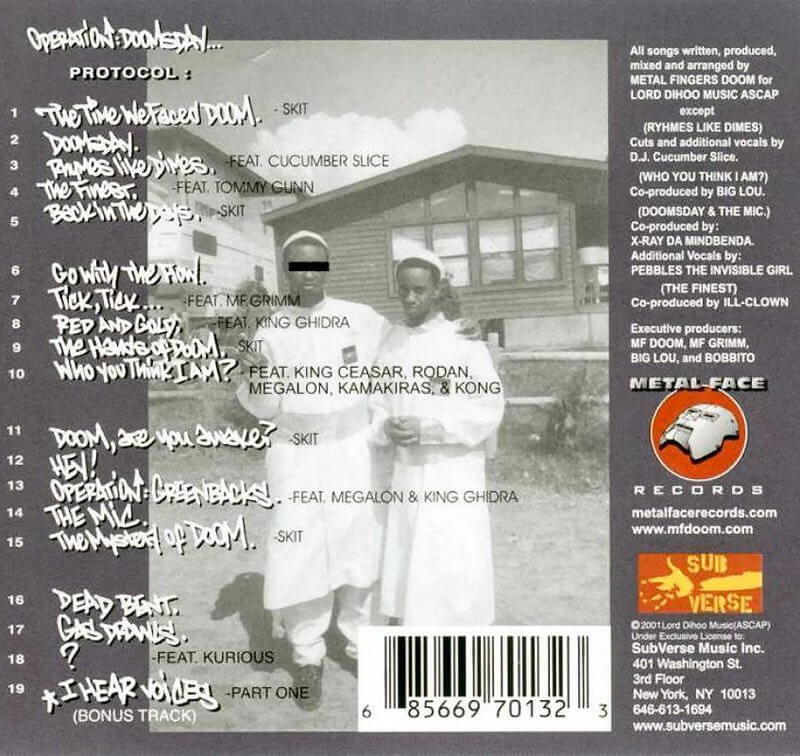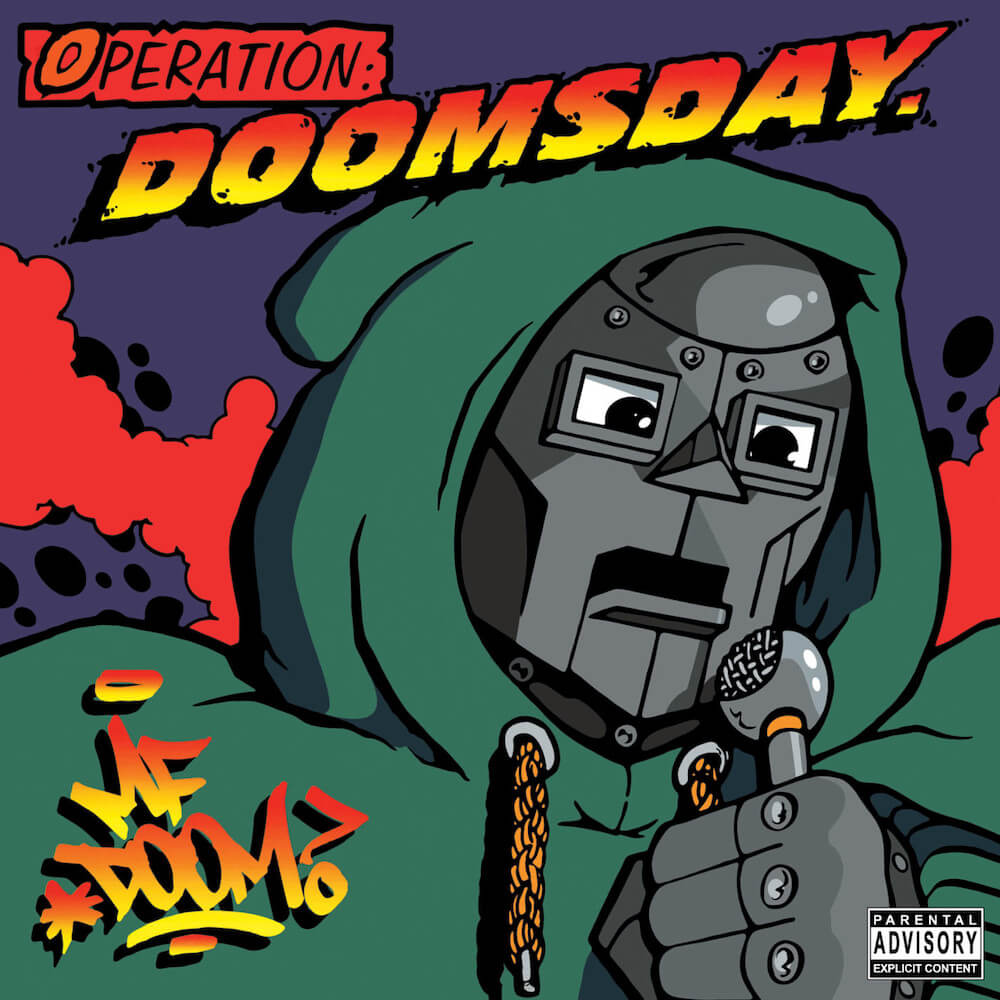“Statement” albums are usually bitter ordeals, manufactured to insult ex-collaborators and chastise the industry that so woefully underestimated the artist responsible. They’re intended to be seismic shifts in power, all the more tragic when they reveal themselves as desperate pleas for attention, paraded out as a return to form or stoic artistic endeavor.
Daniel Dumile had more than enough material for a major statement, having been dumped by Elektra Records the week of his brother and bandmate’s death, followed by a crippling bout of manic depression and homelessness. Left with no other option, Dumile abandoned his previous politically-minded persona (Zev Love X), adopting the vengeful impulses and world domination schemes of Doctor Doom, comic enemy of The Fantastic Four and possessor of a suspiciously similar last name.
While fascinated by the melodramatic viciousness of the character, Dumile’s terroristic inclinations stop there, as Operation: Doomsday plays more like an affable prank from the righteous opposition than the wounded diatribe of power-mad sociopath. His is a resistance fought through cockeyed, underground transmissions, swathed in clamorous “Quiet Storm” R&B and discordant superhero audio bites. Seeing the freedom in being cast aside, MF DOOM sculpted a vision of hip-hop from the sum of his own influences, deeply fascinated by the amorphous nature of words and the ability to blend disparate sounds into a uniform whole. It’s a debut of startling complexity and perceptive prose, etymologically powerful enough to stir a devoted cult decidedly off the mainstream radar.
Perfectly accompanying his throaty vocals, DOOM’s bars are speedy turns of phrase, gently stoned and slightly salivary, trading in onomatopoeia and simile with a knack for specificity and a poet’s linguistic confidence. While he’s certainly fond of digression or an off-the-cuff limerick, he prefers to carry a strand of related references through each track, sneakily obscured by literary device or intentionally diverting word game. “Red and Gold” drags the listener down the rabbit hole, prowling like a brawler’s anthem on the surface, while paralleling non-Halal dietary habits to lunar superstition in the subtext, likening his profound content to a solar eclipse and the symbolic rebirth of the changing seasons.

His production is just as intricate as his lyrical content, pairing cheese-ball adult contemporary with juicy loops of soft jazz, using the disparity to further develop his image as a nonconformist and outsider. Expecting a recognizable hook is obviously out of the question, since the samples used aren’t even given a chance to sour, left slightly askew and off-center enough to lend a jittery bounciness. The obviousness of the preset drum clap seems intentional, not as a bludgeon, but as testament to the lo-fi aesthetic. Doom even calls out his source on “Go With the Flow,” giving Kool G. Rap & DJ Polo full credit, which seems positively moral for a self-described supervillain. Moments of criminal inclination rely on orchestral swoon and fluttering jazz flute for maximum dramatic effect, all rolled over a sleepy yawn of a bass stroll and spook show organ. Yet, this is all pantomime, since DOOM’s never that serious about his thieving ways, hoping for laughs as he eulogizes his missing gold fronts over a bed of melodramatic strings.
“Rhymes Like Dimes” banks on his audience’s sense of humor, ripping baby-making organ from Quincy Jones and looping it into a agitated frenzy, creating a sonic metaphor for dealing and prostitution that couples perfectly with his subtle social commentary on American consumerism. Perverting a sex jam into a statement on sex trafficking may seem like a stretch, but DOOM is always cognizant of the potential for an underlying message, even at his most callow. Comparing vaginal lubrication to Brita water filtration and verbal proficiency to Tae Bo aerobics might seem like dime-store triviality, but they’re just as much a product of capitalistic culture as sex and drugs, only veiled by chauvinistic superficiality.
The allure of Operation: Doomsday stems from this shaggy spontaneity, indulging MF DOOM‘s inner dichotomy between wisecracking weed head and odist aesthete. It’s a work littered with brilliant concepts ripped from tattered rhyme books and outmoded E-mu Emulators, getting fat on an indulgent rolodex of samples and junk-food cultural minutiae, proving that living well is the best revenge and independence finds Daniel Dumile at his most vital.
MF Doom – Operation: Doomsday was ranked #13 on Matt Deapo‘s Hip Hop Top 50, a ranking of 50 of the best Hip Hop albums recorded between 1978 and 2006, based on this consideration and these rules.
